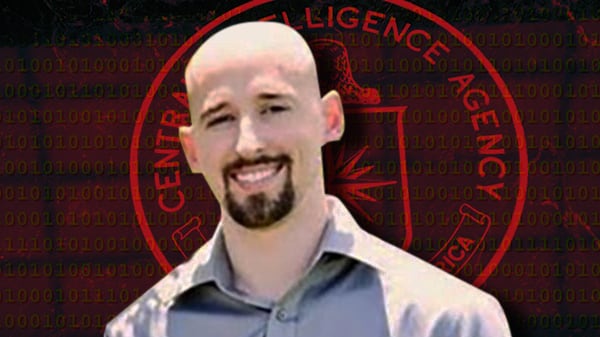Tech
Photo Illustration by The Daily Beast
CIA Coder Charged With Massive WikiLeaks Dump
VAULT 7
The former coder, already charged with possession of child pornography, now faces multiple counts of violating the Espionage Act.

Trending Now
Crime & JusticeUnshaven Luigi Mangione Shows Signs of Stress in Court
Crime & JusticeLuigi Mangione Judge Married to Former Healthcare Exec




